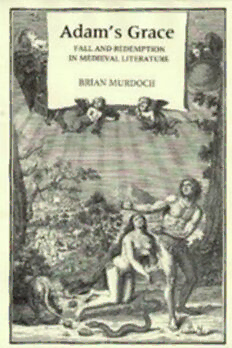
Adam's Grace: Fall and Redemption in Medieval Literature PDF
218 Pages·2000·0.891 MB·English
Most books are stored in the elastic cloud where traffic is expensive. For this reason, we have a limit on daily download.
Preview Adam's Grace: Fall and Redemption in Medieval Literature
Description:
The theme of Adam's Graceis the interplay of theology and literature across a wide range of genres and vernaculars: in particular, the use of medieval literary texts to explain the balance of the Fall and Redemption, the universality of original sin, and the identity of mankind with its first parents, Adam and Eve. The process begins with the Christian tradition of apocryphal Adam-lives, which live on and develop in many vernaculars. Later, Adam is used as a literary model, on whom many well-known Christian figures of the middle ages - knights, popes, emperors, kings and saints - can be seen to be based. They include Gregorius, the `medieval Oedipus', whose case demonstrates the resolution of the paradox of the felix culpa; Parzival, searching for the Holy Grail and for God in the hostile world into which he has been ejected; and the many medieval figures (literary and even historical) associated with the legends of leprosy, blood and healing which reflect the sacrifice in the Redemption. The last part of the book looks at the drama, first of all the medieval representations of the Fall and the Passion, and then the rather different portrayal of Adam on stage in the Reformation and the Counter-Reformation.
See more
The list of books you might like
Most books are stored in the elastic cloud where traffic is expensive. For this reason, we have a limit on daily download.
